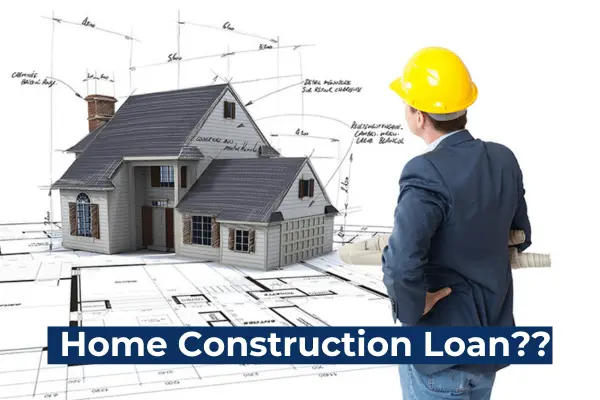How to Secure Your Dream Home: A Comprehensive Guide to Home Construction Loans

Table of Contents
What is a Home Construction Loan?
A home construction loan is a type of financing designed to help individuals build their dream homes from the ground up. Unlike traditional mortgages that are used to purchase existing homes, construction loans provide funds for the construction process itself. These loans typically have variable interest rates and require a different application process than standard mortgages.
Key Differences Between Home Construction Loans and Traditional Mortgages
While both home construction loans and traditional mortgages serve to help individuals acquire homes, they differ in several key aspects. Construction loans, for instance, disburse funds in stages as the construction progresses, whereas mortgages provide a lump sum upfront. Additionally, construction loans often require higher down payments and stricter credit score requirements due to the higher risk associated with financing a home that hasn’t been built yet.
Types of Home Construction Loans: Exploring Your Options
Single-Close Construction-to-Permanent Loan
A single-close construction-to-permanent loan, also known as a C2P loan, combines financing for both the construction phase and the long-term mortgage into a single package. This type of loan streamlines the process by eliminating the need for separate approvals and closings. Borrowers typically make interest-only payments during the construction phase, with the loan converting to a standard mortgage once construction is complete.
Stand-Alone Construction Loan
A stand-alone construction loan provides financing solely for the construction of the home. Once the construction is finished, borrowers must secure a separate mortgage to pay off the construction loan. While stand-alone loans offer flexibility, they require borrowers to undergo two separate approval processes and may have higher overall costs compared to C2P loans.
Pros and Cons of Different Home Construction Loans
Benefits of a Single-Close Construction-to-Permanent Loan
- Simplified financing process with one loan for both construction and permanent mortgage.
- Protection against interest rate fluctuations during the construction phase.
- Potential cost savings due to single closing and underwriting process.
Challenges of a Stand-Alone Construction Loan
- Higher overall costs due to two separate loan transactions.
- Potential for higher interest rates on the permanent mortgage.
- More complex application and approval process compared to C2P loans.
Qualifying for a Home Construction Loan: What You Need to Know
Credit Score Requirements
Home construction loans typically require higher credit scores than traditional mortgages, with minimum scores often ranging from 680 to 720. Borrowers with lower credit scores may still qualify for certain loan programs but may face higher interest rates and stricter eligibility criteria.
Minimum Down Payment
Down payment requirements for home construction loans vary depending on the lender and loan program. In general, borrowers can expect to contribute a minimum of 20% of the total project cost as a down payment. However, some government-backed programs offer options for lower down payments, such as FHA loans requiring as little as 3.5%.
Builder Vetting Process
One unique aspect of home construction loans is the lender’s involvement in vetting the builder. Lenders typically require builders to provide proof of licensure, insurance, and financial stability before approving the loan. This vetting process helps ensure that the builder has the expertise and resources to complete the project on time and within budget.
Step-by-Step Guide to Obtaining a Home Construction Loan
Preapproval Process
Before starting the home construction process, prospective borrowers should seek preapproval from a lender. During this process, lenders evaluate factors such as income, credit score, and financial history to determine the borrower’s eligibility and maximum loan amount.
Finding a Reputable Builder
Choosing the right builder is crucial to the success of any construction project. Prospective borrowers should research builders carefully, considering factors such as experience, reputation, and portfolio of past projects. Obtaining recommendations from friends, family, and real estate professionals can also help identify reputable builders.
Applying for the Loan
Once preapproved and armed with a construction contract from a reputable builder, borrowers can formally apply for the home construction loan. The application process typically involves submitting documentation such as income verification, asset statements, and construction plans to the lender for review. Upon approval, the loan proceeds are disbursed in stages as construction progresses.
Understanding Home Construction Loan Interest Rates
Factors Influencing Interest Rates
Interest rates for home construction loans are influenced by various factors, including market conditions, borrower creditworthiness, and loan type. Borrowers with higher credit scores and lower debt-to-income ratios typically qualify for lower interest rates.
Tips for Securing a Cheap Interest Rate
To secure a favorable interest rate on a home construction loan, borrowers can take several steps:
- Improve credit score: Paying off outstanding debts and maintaining a clean credit history can help boost credit scores and qualify for lower interest rates.
- Shop around: Comparing loan offers from multiple lenders allows borrowers to find the most competitive rates and terms.
- Consider a shorter loan term: Shorter loan terms often come with lower interest rates, although monthly payments may be higher.
Conclusion
Getting your dream home built is not an easy task. With the right knowledge and preparation, navigating the process of obtaining a home construction loan becomes more manageable. By understanding the various loan options, qualifying criteria, and potential challenges, you can make informed decisions that bring you closer to homeownership.
If you wish to read more similar articles. Click here
Frequently Asked Questions:
While a higher credit score increases your chances of approval and better terms, some lenders offer options for borrowers with lower credit scores, particularly through government-backed programs like FHA loans.
Typically, home construction loans require a down payment of at least 20% of the total project cost. However, certain programs may allow for lower down payments, such as FHA loans requiring as little as 3.5%.
Common documents required for a home construction loan application include proof of income (pay stubs, tax returns), asset statements, construction plans, and builder credentials.
If the builder fails to complete the construction, the homeowner may face challenges. It’s crucial to thoroughly vet the builder and ensure they have the necessary licenses, insurance, and track record for completing projects.
